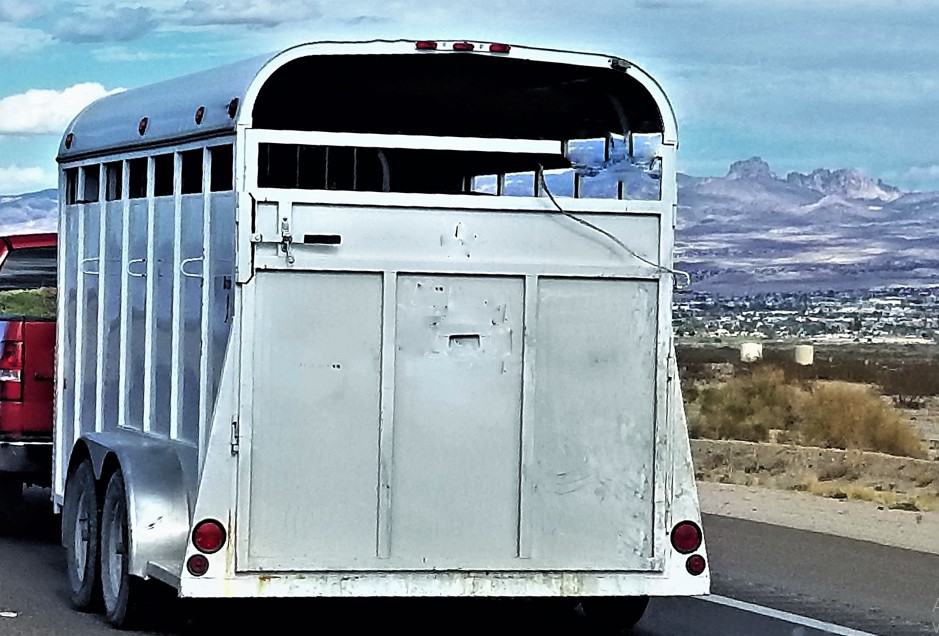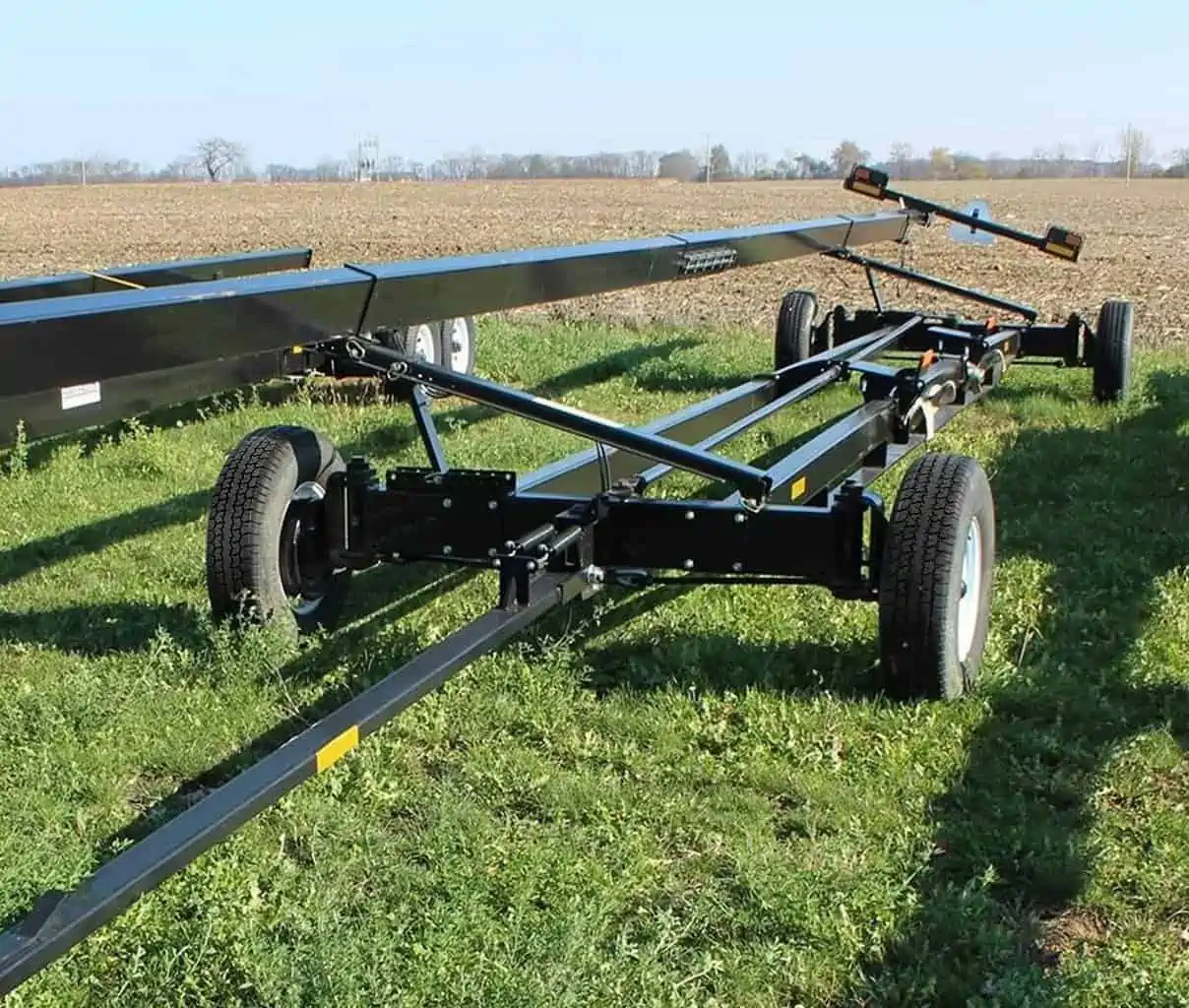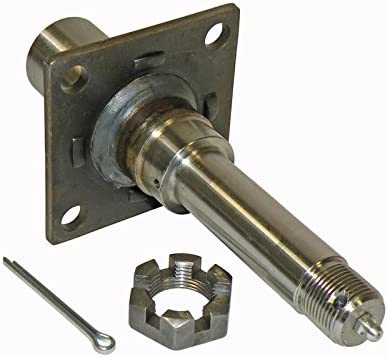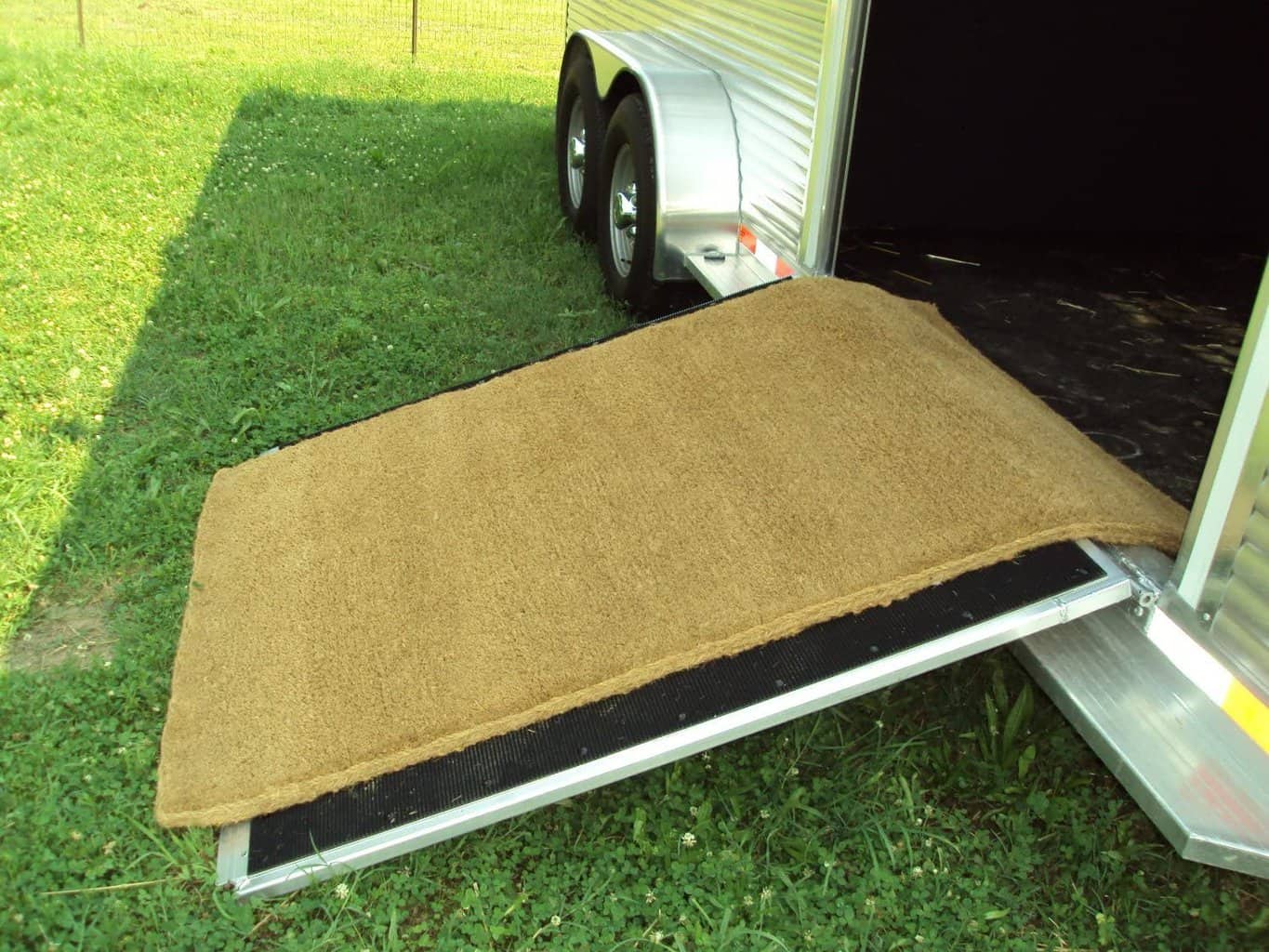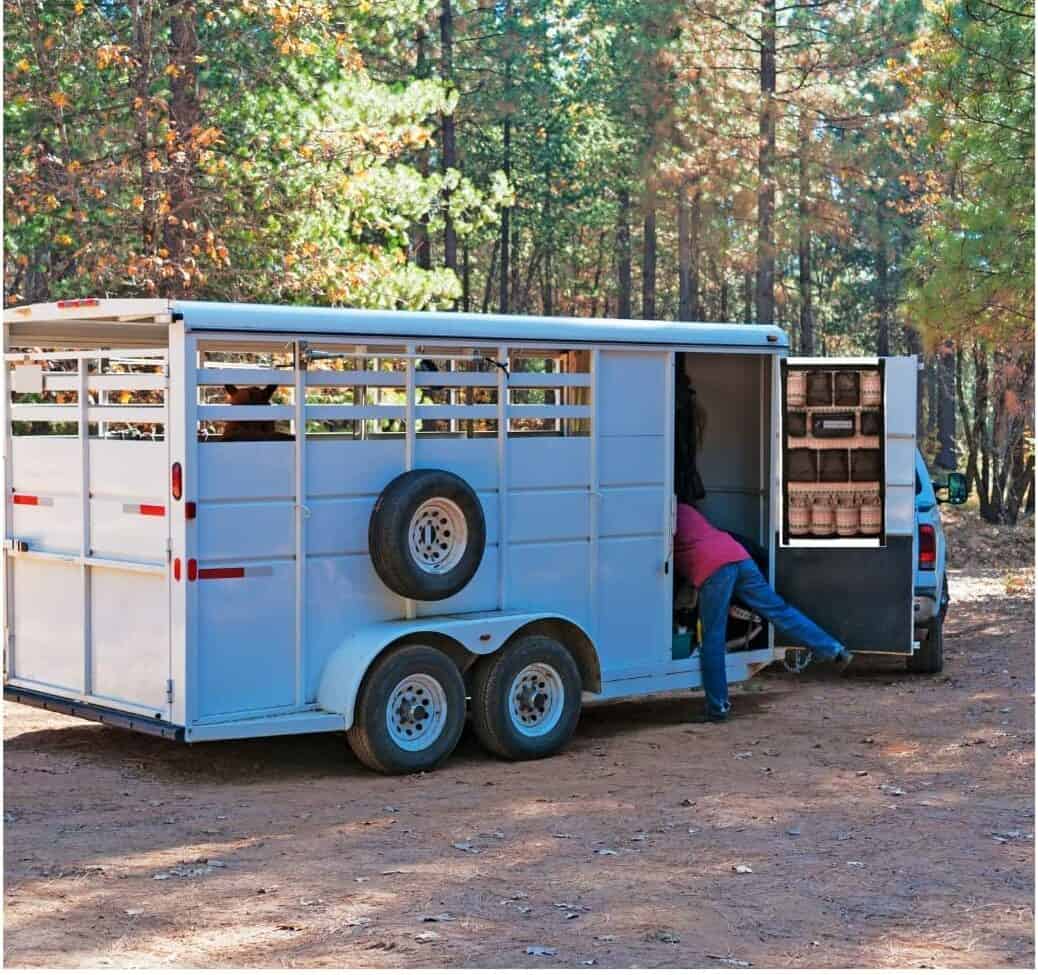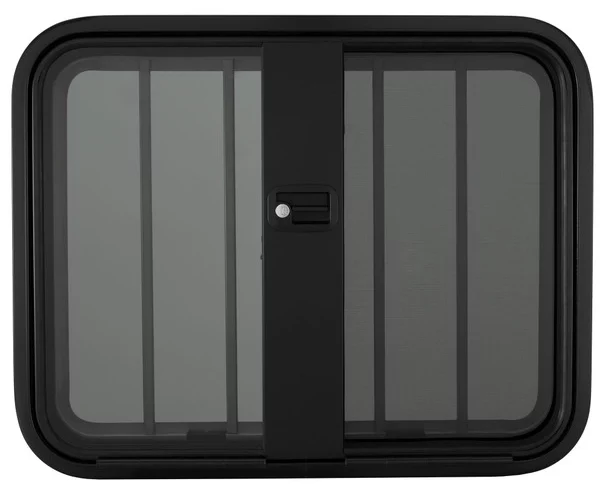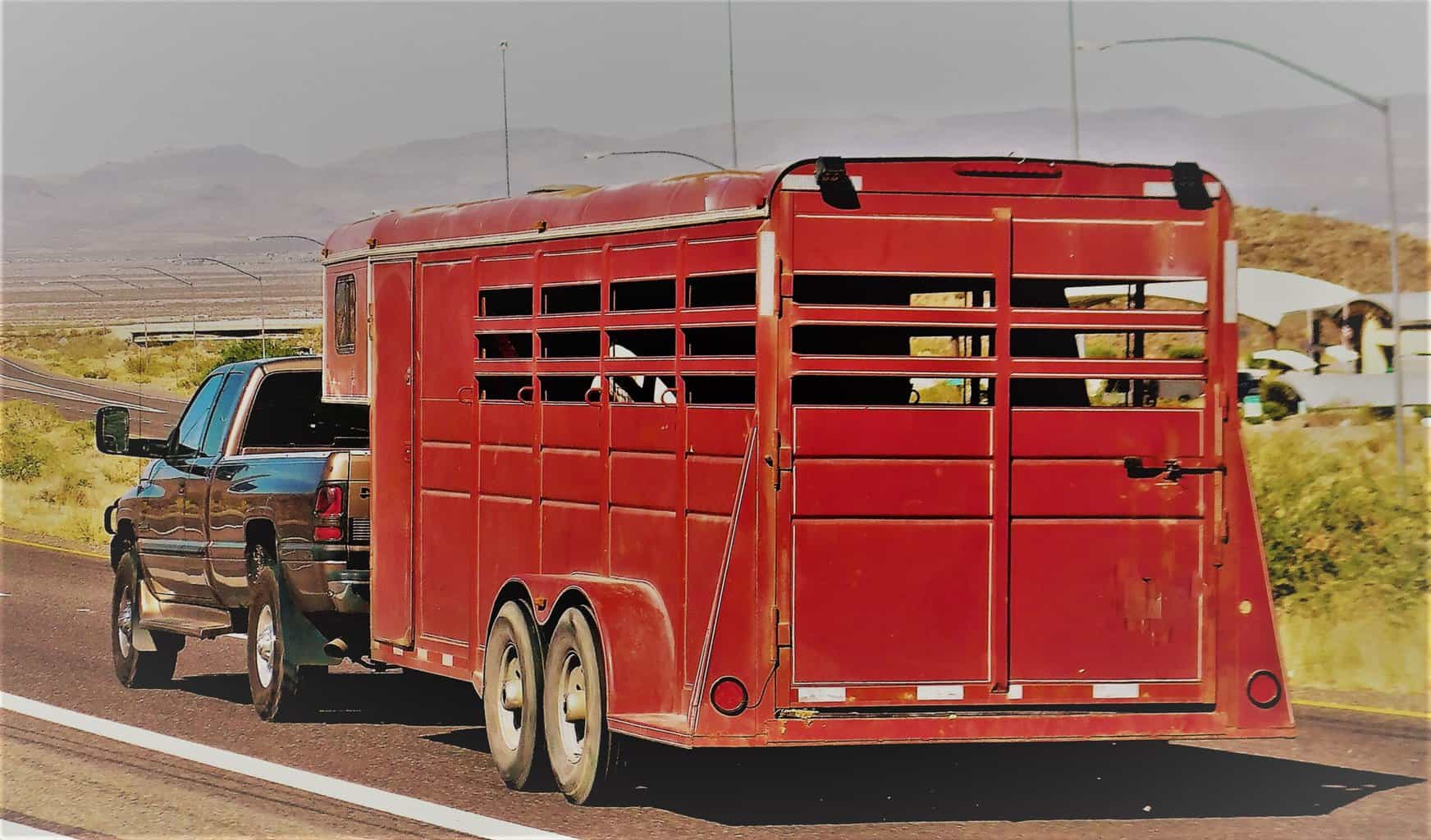- Can Horses Eat Watermelons - September 23, 2023
- How to Get a Horse to Trust You - September 21, 2023
- Best Horse Wormers for Spring Guide - August 10, 2023
I’ve worked with horses for many years, and caring for them is only a small part of the job. When you own a horse, you must regularly clean and maintain the equipment that comes with them.
Horse trailers are one of the most expensive items you can splash out on, and you must take good care of your investment. If you want to know how to keep your trailer functioning, looking good, and how to deal with routine problems, take a look at my common horse trailer repairs guide.
Bottom Line Up Front
Horse trailer repairs can be expensive, but they are a necessary expenditure if you want to keep your horses safe and comfortable on the road.
The most common horse trailer repairs include changing tires, brake pads, light bulbs, and damaged parts and replacing the floor or hitch. In this guide, I’ll tell you about the most common trailer repairs and the best way to deal with them.
Horse Trailer Maintenance – The Basics
No matter how well you take care of a horse trailer, it’s normal for parts to break or wear out over time. The key is to catch issues in the early stages before they become a problem that will compromise your and your horse’s safety on the road. The best way to do this is with regular maintenance.
Horse trailers are road vehicles but are much easier to maintain than cars because they have fewer mechanical features. You can carry out many trailer maintenance tasks alone, but you should get your trailer serviced once a year by a professional who will check the brakes and electrics.
I like to have my trailers serviced in the spring, just before the summer starts. This is the ideal time to inspect the trailer for winter damage and to ensure it’s safe for the season ahead.
I always cover my trailer in the winter to prevent damage from water or sun exposure, and I clean my trailer regularly, inside and out. When I clean my trailer, I use the opportunity to inspect it and make sure all the parts are in good shape.
The golden rule of trailers is never to leave droppings or urine on the floor because they will damage it quickly. To keep my trailer looking good, I try to wax and polish it once a year.
Horse Trailer Maintenance Schedule
The best way to keep your trailer in good working order is with a regular maintenance schedule. I always check the trailer each time I use it to ensure the brakes and lights work and that the tires are in good condition with the correct pressure.
I like to grease moving parts of the trailer, such as the hitch, every six months, and I always take my trailer for a professional service once a year. The best way to keep on top of trailer maintenance is with a clear schedule. If you want a better idea about how to maintain your trailer, look at this trailer maintenance schedule below.
Here are the things you should check before each use:
- The General Condition: Inspect the inside and outside of the trailer, and look out for loose parts and structural damage.
- The Brakes: It’s vital to ensure the trailer brakes work before you go on any journey.
- The Lights: Ask someone to help you check all the trailer lights work – this includes road lights, stop lights and turn signals.
- The Coupler: When you hitch the trailer to your vehicle, ensure the coupler is tight and secure.
- Any Chains, Hooks, Cables and Connections: You should check these are all in good condition with no rust or damage.
- The Tires: Make sure your tires are at the correct pressure, with sufficient tread, and that there are no bald patches, cracks or other visible damage.
- The Wheel Lugs: The wheel lugs must be tight and secure.
- The Doors: Make sure all the doors and windows function correctly.
Here are the things you should do to your trailer every six months or 6000 miles:
- Check The Tires: Make sure they are in good condition with sufficient tread. You can also rotate trailer tires every six months to encourage even wear and prolong their life.
- Inspect and Grease the Hitch and Wheel Bearings: Grease your hitch and wheel bearings regularly to prolong their life. You should also ensure bolts and lug nuts are all present and tightly in place.
- Give the Trailer a Deep Clean Inside and Out: Remove all dust, dirt and grease from your trailer and take out the mats to inspect the floor.
Here are the things you should do to your trailer every twelve months or 12000 miles:
- Take it For a Service: Take your trailer to a professional mechanic so they can check brakes, axles, tires, and mechanical parts.
- Clean and Wax the Outside: Clean and wax the outside of your trailer once a year to keep it looking shiny and new.
Here Is A List Of The Most Common Horse Trailer Repairs
The most common horse trailer repairs include changing the tires, brakes pads and lights. Over time, however, you might have to carry out more serious repairs such as replacing the floor, coupler or damaged windows and doors.
To help you keep your trailer functioning safely, below, I’ll talk you through some of the most common horse trailer repairs.
#1 – Common Tire Repairs
One of the most common things I deal with as a trailer owner is the tires. Tire problems are a big deal, and to prevent a blowout, I always check them regularly and replace them before they wear out.
You must change trailer tires when the tread is less than a quarter inch thick, or after 4-5 years or 25,000 miles. Horse trailers don’t have a milometer, but you can note your mileage down every time you use it to gauge the distance they have traveled. Even if your tires have good tread and low mileage, you should still replace them every 4-5 years because they are prone to sun damage and dry rot.
I always ensure I have a spare tire, trailer jack and lug wrench in the trailer at all times in case I need to change the tire on the road. When you replace a tire, always ensure it’s the correct size and type recommended by the manufacturer.
To prevent tire damage, I move my trailer at least once a month when it’s not in use. You can also remove the tires and put your trailer on blocks for the winter to preserve the tires.
#2 – Common Brake and Axle Repairs
Your trailer brakes must be in good working order because if they don’t work, the trailer can spin out of control and take your towing vehicle with it. The most common break repair I face is replacing the brake pads, but you can also have more complex problems with the braking system. Horse trailer braking systems are complex, and you should have a mechanic inspect your brakes annually and carry out repairs.
A vital part of the braking system is the breakaway cable which will automatically apply the handbrake if the trailer brakes away from the towing vehicle. It’s normal for a breakaway cable to deteriorate over time, so you must check it regularly and replace it if it’s damaged.
The trailer axles support the wheels, and due to the heavy load, sometimes they can bend and break. If you have uneven wear on your tires, this can indicate a bent wheel axle, and you must get it checked by a professional.
#3 – Common Floor Repairs
Horse trailer floors don’t last forever, and you will have to replace them occasionally because the weight of the horses, combined with droppings and urine, will inevitably damage them over time. If a trailer floor is damaged or weak, the results can be fatal, especially if it gives way while your horses are in transit. You must replace a trailer floor immediately if it is over-worn or damaged.
Horse trailer floors are made from aluminum, treated wood or composite material and are usually covered by thick rubber mats for protection. You must remove the mats at least every six months to assess the state of your trailer base. Wooden floors are the most prone to rot, but aluminum floors can fall victim to corrosion, especially if you leave urine or droppings sitting on them.
It’s time to replace your trailer floor if you see signs of rot, damage, sagging, stress fractures or corrosion. With wooden floors, you can also probe the surface with a sharp knife or screwdriver to see if the wood is soft. You must also check the supporting beams for signs of damage.
If you spot signs of rot or corrosion, you must replace the affected planks for wooden floors or the whole floor in the case of aluminum ones. You must fix the trailer floor with aluminum, treated wood or composite planks. Never use pressed wood, untreated wood or plywood – they are not strong enough for horse trailer floors.
#4 – Common Rust Repairs
All trailers are prone to rust, especially if you store them outside. Steel trailers rust easily, and aluminum ones can corrode and often have a steel frame. If you don’t treat rust, it will spread and cause structural damage to your trailer. You must identify and remove rust in the early stages to prevent it from spreading and causing further damage.
Rust can develop anywhere on the trailer, particularly the undercarriage and frame. Luckily, it’s easy to remove small spots of rust with sandpaper or a wire brush and with a coat of rust inhibitor paint. If you have a large rusty area, it’s better to seek professional advice from a welder or iron worker.
#5 – Common Door Repairs
Now and then, I come across problems with the locks or hinges on trailer doors, and most of the time, they are easy to fix. Maintaining and repairing doors is essential because if a trailer door suddenly springs open during transit, the horses will get a mighty fright and jump around, which is incredibly dangerous.
I check the doors every few months, and if they are stiff, I use lubricant on the hinges to loosen them. Trailer doors must move freely, in case you or your horse need to vacate the trailer quickly due to an emergency. I always replace locks or closures if they don’t work, and in some cases, you might have to replace a trailer door.
#6 – Common Window Repairs
Horse trailer windows are vital because they improve air circulation and help to keep horses cool during transit. The most common thing that can go wrong with a trailer window is a break or crack.
I always check the windows after each journey for cracks. If I discover a large chip in the glass, I replace the window because it can shatter and injure my horse. Window grilles and bars can also deteriorate over time, and you must replace them as necessary.
#7 – Common Hitch/Coupler Repairs
The trailer hitch is a vital safety feature because it attaches the trailer to your vehicle and must function correctly. If it’s damaged or faulty, you won’t have control of the trailer, and in worse cases, the trailer can unhitch from your truck.
The trailer hitch is under a lot of stress and can wear out or break with regular, intense use. The hitch must grab and lock onto the tow bar and hold it securely in place – it shouldn’t be loose. If it doesn’t connect properly, you must replace it with a new one. I grease the hitch on a trailer every six months to keep it in tip-top condition.
#8 – Common Electrical Repairs
The main electrical feature of a horse trailer is its lights – road lights, brake lights and turn signals. The most common problem with lights is that the bulbs and fuses can blow. It’s normal for light bulbs to wear out occasionally, and to be safe on the road, you must replace them immediately.
I like to keep spare bulbs and fuses in my trailer, so I can fix them if I blow a light or fuse during transit. It’s also a good idea to study your fuse box to get familiar with it in case you need to change a fuse on the road.
#9 – Common Roof Repairs
The main problem with trailer roofs is that they tend to leak over time. Prolonged sun exposure can damage the seals and create leak spots. If you don’t address leaks, they will inevitably cause mold and rot inside the trailer.
I’ve found that when a trailer is exposed to the elements, you need to change the caulk every 5-6 years. The best way to preserve the trailer roof and seals and ultimately prolong their life is with a horse trailer cover.
FAQs
Answer: You can use sandpaper or a wire brush to remove small rust spots from a horse trailer. You must remove all the rust because it will spread if you leave any behind. When you sand the rust away – you must paint the area with anti-rust paint. If you have large areas of rust on a horse trailer, you should seek advice from a professional welder about repairs.
Answer: Horse trailers have brakes that connect to the ones on your towing vehicle. When you apply the brakes in your tow truck, the trailer brakes will automatically engage a few seconds later.
Horse trailers usually have a breakaway cable that automatically applies the handbrake if the trailer brakes away from your vehicle. Like all road vehicles, you should get a professional to check your horse trailer brakes once a year or if they develop faults.
Answer: The best way to deep clean a horse trailer is with a small, low-power jet wash. You can use it on the inside and outside of the trailer, and it will effectively remove dirt, dust and debris. Before you start, remove surplus items such as tack, trailer ties, and hay nets, and sweep the floor.
Always remove the floor mats when you deep clean a trailer. Clean them separately with disinfectant, and ensure the trailer floor and mats are completely dry before you put them back in. Make sure you clean the undercarriage and around the wheels too.
Common Horse Trailer Repairs: Conclusion
If you want your horses to be safe on the road, you must stick to a regular trailer maintenance schedule and address faults quickly. If you don’t make frequent repairs, the results can be disastrous, not only for you and your horse but for other road users too. To avoid problems when traveling with your horses, make sure you check the essentials such as lights, brakes and tires before each journey.
It’s fine to make small repairs to your trailer, but for major problems or mechanical faults – you should get a professional to do the work. If your trailer lives outside in the winter, you should invest in a horse trailer cover to protect it from the elements – which will ultimately reduce the number of repairs you must carry out.
Resources
- “10 Horse Trailer Maintenance Tips.” Coach Specialists of Texas, 29 Jan. 2020, www.coachspecialists.com/blog/10-horse-trailer-maintenance-tips.
- Ellis-Ashburn, Hope. “Trailer Tire Check Up.” Equus Magazine, 5 Apr. 2022, equusmagazine.com/horse-care/trailer-tires.
- “Horse Trailer Brakes: What You Need to Know Before Buying Your Trailer.” Double D Trailers, 12 Feb. 2014, www.doubledtrailers.com/horse-trailer-brakes/#:%7E:text=When%20you%20step%20on%20the,pads%20onto%20a%20brake%20drum.
- “Horse Trailer Floor Failure: Is Your Trailer Floor Strong Enough?” Double D Trailers, 15 Jan. 2016, www.doubledtrailers.com/horse-trailer-floor-failure.
- Horse Trailer Maintenance and Trailering Safety | Equine Science Center. esc.rutgers.edu/fact_sheet/horse-trailer-maintenance-and-trailering-safety-2. Accessed 12 Sept. 2022.
- “How to Get Horse Trailer Service When You Need Repairs.” Double D Trailers, 1 June 2018, www.doubledtrailers.com/how-to-get-horse-trailer-service-when-you-need-repairs.
- JSW Horseboxes. “Horse Trailer Maintenance Guide.” JSW Horseboxes, 21 Sept. 2020, www.jswhorseboxes.co.uk/horse-trailer-maintenance-guide.


